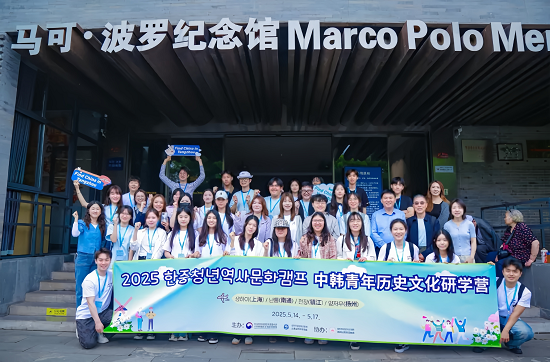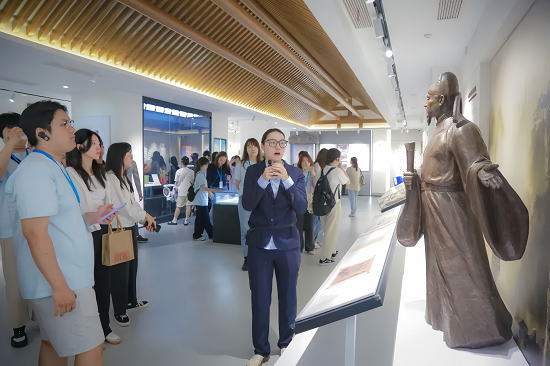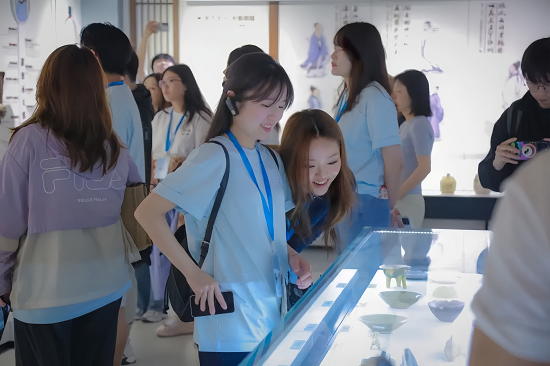A research camp comprising around 40 students from South Korea and China embarked on a two-day visit to Yangzhou on May 16.

The youth research camp visits the Marco Polo Memorial Hall on May 16. [Photo/WeChat account: yzs_lyj]
Their research trip began with an exploration of the Marco Polo Memorial Hall. Through an array of cultural artifacts and a rich collection of historical archives, the young participants retraced the footsteps of the legendary Italian merchant Marco Polo (1254-1324), one of the world's most renowned travelers. Observations recorded during the adventurer's three-year sojourn in Yangzhou also allowed them to appreciate the city's pivotal role in ancient East-West cultural exchanges.
"We only knew about this great traveler from textbooks before. This on-site visit has transported us back in time, immersing us in the rich history of Yangzhou," one South Korean student said.

The group admires the statue of Choe Chiwon. [Photo/WeChat account: yzs_lyj]
They then visited the Memorial Hall of Choe Chiwon, a famed South Korean scholar and poet of the late medieval Unified Silla period (668-935). He studied for many years in China during the Tang Dynasty (618-907), leaving behind an abundance of literature that has earned him reverence as an outstanding pioneer of cultural exchanges between China and South Korea.
"South Koreans were proud of Choe Chiwon. His historic contributions to the long-standing ties between the two nations impress me a lot," another South Korean camp member said.

Cultural relics of the Memorial Hall of Choe Chiwon draw visitors. [Photo/WeChat account: yzs_lyj]